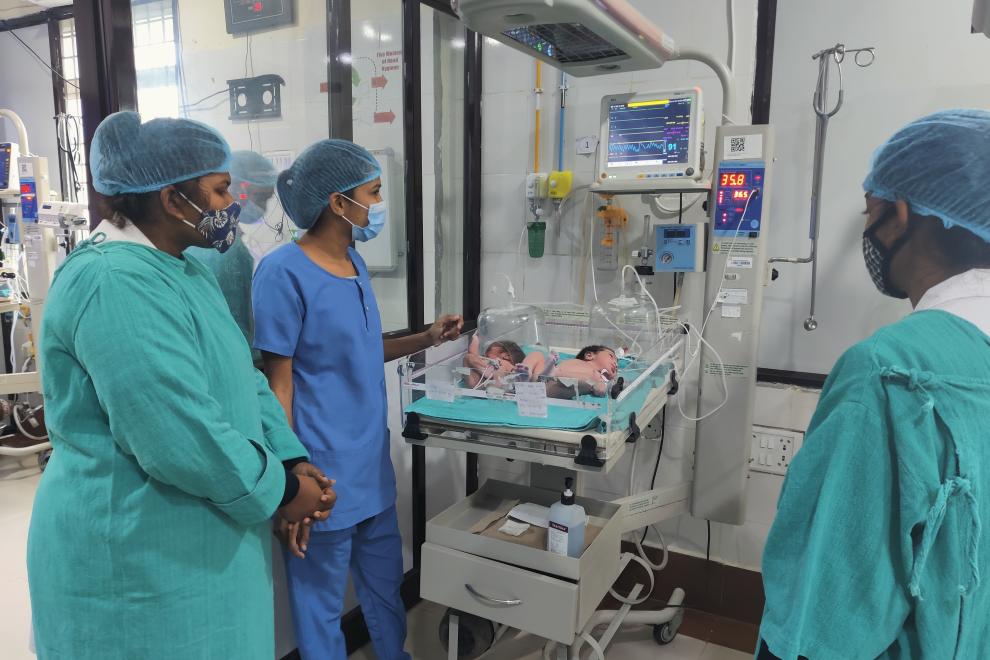We appreciate it that you’re here to read our in-depth guide to the internship for foreign medical graduates (FMG) in India. We will give you detailed information on the National Medical Commission’s (NMC) most recent clarification of the Compulsory Rotatory Medical Internship (CRMI) in this article. To ensure a seamless entry into the Indian healthcare system as an aspirant FMG, it is essential to comprehend these requirements.
Knowing about the FMG Internship
What is FMG?
Individuals who received their medical degrees from universities outside of India are known as Foreign Medical Graduates, or FMGs. These people want to work in medicine in India and improve the healthcare system there.
The Importance of CRMI A medical graduate’s journey to becoming a licenced practitioner in India requires them to complete a mandatory rotating medical internship (CRMI). It is a one-year internship programme designed to give FMGs real-world experience in a variety of medical specialties while assisting them in gaining important skills and abilities.
CRMI Clarification from NMC
The qualifications for FMGs pursuing CRMI in India were recently clarified by the National Medical Commission (NMC). The goal of this explanation is to establish clear rules and clear up any past uncertainty that FMGs may have had. Let’s examine the main ideas presented in the NMC’s explanation.
Eligibility requirements
Specific qualifying requirements have been established by the NMC for FMGs wishing to participate in the CRMI programme. These standards consist of:
- Degree Accreditation: FMGs must possess a medical degree that is listed in the World Directory of Medical Schools (WDOMS) or another authoritative international directory.
- The Foreign Medical Graduate Examination (FMGE), commonly known as the MCI/NMC Screening Test, is a requirement for FMGs. The medical expertise and knowledge of FMGs are evaluated by this exam.
- Medical Council Registration: In order to pursue their CRMI, FMGs must first get temporary registration from the relevant State Medical Council (SMC).
The Clarification’s Goal
The NMC has carefully thought through the concerns surrounding the internship for FMGs in cooperation with the Ministry of Health & Family Welfare. These clarifications are being made in order to ensure transparency and respond to issues that stakeholders and State Medical Councils have raised. The NMC attempts to give full information and promote understanding among the numerous parties involved by combining the rules and directions.
Important Provisions for FMGs in the CRMI Regulations of 2021
Foreign medical graduates must do at least a twelve-month supervised internship in India. In compliance with the Foreign Medical Graduate Licentiate (FMGL) Regulations 2021, they must submit applications to the Commission for internships. For FMGs to graduate from their internships, their internships must be finished within two years of passing the final MBBS, FMGE, or NEXT Step-1 test.
FMGs will be assigned to medical schools or other organisations that are authorised to offer Compulsory Rotating Medical Internships (CRMI) to Indian Medical Graduates in order to streamline the internship procedure. The corresponding State Medical Councils will distribute the colleges. The corresponding State Medical Councils will distribute the colleges. The colleges, linked hospitals, and Community Health Centres must be approved by the Commission to run the CRMI programme before the counselling or seat allocation procedure can begin.
- Online Study Validation by Commission
The Commission allowed exceptions during the Covid-19 outbreak, despite the fact that it has never authorized or verified medical credentials (both theoretical and practical) only through online mode. In accordance with the existing curriculum, medical colleges and institutions in India are permitted to offer online courses that are reinforced with practical and clinical training. The NMC standards do not recognise online study for medical degrees, including its theoretical and practical components.
- Application of NMC Public Notice on FMGs from July 28, 2022
On July 28, 2022, the NMC released a public notice that clarified the rules that apply to foreign medical graduates (FMGs). The notice states that the two-year internship clause only applies to FMGs who were in their last year of medical qualifying studies when they were forced to return to India because of events like COVID-19 or the Russia-Ukraine War. These FMGs must pass the FMG Examination after successfully finishing their medical qualification and must then do a Compulsory Rotating Medical Internship (CRMI) for two years, with a schedule of 12 months to be repeated. A hospital affiliated with a medical college is where this internship must be finished.
- Domicile Requirement by FMGs for Internships
State Medical Councils are not allowed to refuse FMGs access to medical universities for internships based only on where they reside. If they meet the requirements, FMGs are free to do their internships in any medical college located in a State or Union Territory. The allocation procedure shouldn’t take the domicile requirement into account.
- Partially completed internship by FMGs
An FMG is free to continue the second year of their internship in another medical college, a State, or a Union Territory if they have previously finished the first year of their internship in one medical college in India. Due to this flexibility, FMGs can select from a variety of seats to host internships.
- Stipends are paid to FMGs.
By way of a circular dated 19.05.2022, the NMC asked all Directorates of Medical Education and State Medical Councils to make sure that no FMG interns, whether Indian or foreign, are charged an internship fee by medical colleges or institutions. It was emphasized that FMGs in the relevant States/Union Territories should receive stipends and other benefits on par with Indian Medical Graduates.
- Putting Stipend Guidelines into Practise
Although the NMC has said that the appropriate authority applicable to the institution/university or State should determine the stipend level for FMG interns, the execution of these rules is at the sole discretion of the relevant State authorities. The State authorities are responsible for resolving this issue in circumstances when there is no budgetary provision in the allocation of annual budgets for stipend payment to FMGs.
- Foreign medical graduates are granted a one-time relaxation
The NMC has approved a one-time waiver due to the lack of internship seats for FMGs in several States and Union Territories as a result of the implementation of the two-year internship requirement. The list of Recognised Non-Teaching Hospitals for Compulsory Rotating Medical Internship published by the former Medical Council of India is validated by this relaxation for a period of one year beginning on the date of the circular. With this approach, FMGs will have the chance to finish their internships. However, only through the relevant State Medical Councils can FMGs be allocated to these non-teaching hospitals.
- Validation of Recognised Hospitals that Are Not Teaching
The NMC has approved the recognition of recognised non-teaching hospitals for mandatory rotating medical internships as a temporary measure. The former Medical Council of India published a list of these hospitals, and it is currently valid for a year. Subject to the allocation procedure overseen by the State Medical Councils, this validation permits FMGs to pursue their internships in these facilities.
- FMGs are distributed to non-teaching hospitals.
The relevant State Medical Councils manage the procedure of allocating FMGs to non-teaching hospitals for their internships. These councils are essential in ensuring transparent and fair allocation based on seat availability and FMG merit. The goal is to give FMGs a variety of interesting internship opportunities in various healthcare settings.
- Guidelines for State Medical Councils and Medical Education Directorates
The National Medical Commission’s (NMC) directives and directions for FMG internships are crucially carried out by the State Medical Councils and Directorates of Medical Education. They are in charge of organising and making it easier for FMGs to receive medical colleges, including non-teaching hospitals. The recommendations place a strong emphasis on following the eligibility requirements, abstaining from discrimination based on residence, and making sure that FMGs get stipends and other facilities in accordance with the NMC’s instructions.
Important clarifications and rules regulating the conduct of internships for Foreign Medical Graduates (FMGs) in India have been published by the National Medical Commission. These rules cover a wide range of topics, including the applicability of the NMC’s public notice, domicile requirements, part-time internship completion, stipend payment and implementation, a one-time relaxation for FMGs, recognition of non-teaching hospitals, and the function of State Medical Councils and Directorates of Medical Education.
To maintain a seamless and open internship procedure for FMGs, it is crucial that all parties involved—including State Medical Councils—adhere to these rules. By doing this, we can make it easier for FMGs to become a part of the Indian healthcare system, improve their clinical expertise, and raise the standard of healthcare and medical education in the nation as a whole.























